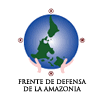Shareholders Reprimand Chevron CEO Watson at Annual Meeting Over $18 Billion Ecuador Liability

Amazon Defense Coalition
28 May 2012 - FOR IMMEDIATE RELEASE
Contact: Karen Hinton at +1.703.798.3109
San Ramon, CA – Chevron CEO John Watson today suffered a stunning reprimand during a tense annual meeting when shareholders voted in massive numbers to support resolutions citing his failure to properly manage the company's $18 billion adverse judgment in Ecuador.
Over 38% of shareholders, representing a whopping $73 billion worth of Chevron stock, supported a resolution to separate Watson's dual role of Board Chairman and CEO due in part to his mismanagement of the historic lawsuit in Ecuador for despoiling the Amazon rainforest. In January of this year, an Ecuador appeals court affirmed an $18 billion trial court judgment against the oil giant for dumping billions of gallons of toxins into Amazon waterways, decimating indigenous groups. See here for a summary of the evidence.
The 38% figure is a substantial increase from the 14% the same resolution got in 2008 when last was raised, signaling increasing dissatisfaction with Chevron's handling of the Ecuador case. Normally, a 10% vote in favor of a shareholder resolution when opposed by management is considered a huge win.
In addition, last week 40 of Chevron's institutional shareholders with more than $580 billion in assets under management sent Watson a letter urging him to settle the Ecuador case while today leading analysts at Oppenheimer concluded that the stock price would get a boost if the long-running case were to be resolved.
"In failing to negotiate a reasonable settlement prior to the Ecuadorian court's ruling against the company, we believe that Chevron's Board of Directors and management displayed poor judgment that has exposed the Corporation to a substantial financial liability and risk to its operations," said the investor letter.
The shareholder vote was a strong reprimand against Watson's leadership.
"For Watson to lose a vote to this degree shows a shocking degree of anger by shareholders over the Ecuador liability and his role in failing to fully disclose material risks to investors," said Simon Billenness, who introduced the resolution on behalf of the Unitarian Universalist Association.
In moving the resolution, Billenness also questioned the independence of Chevron's Board of Directors for awarding Chevron General Counsel R. Hewitt Pate a 75% raise for his "outstanding management" of the Ecuador case – even though under Pate's leadership the company was hit with the largest judgment in the history of environmental law.
"By serving as CEO and Board Chair, Mr. John Watson is in effect his own boss," said Billenness. "That might be good for Watson, but that's not good for Chevron shareholders."
Billenness also chastised Chevron management for signing off on financial statements that failed to disclose Chevron's own internal assessment that enforcement of the Ecuador judgment "is likely to cause irreparable injury to Chevron's business reputation and business relationships."
During the meeting Watson also faced off with two Ecuadorian villagers, Robinson Yumo and Luz Trinidad Andrea Cusangua, who travelled to California to directly confront him over the company's ruination of their ancestral lands and refusal to pay the Ecuador court judgment.
"Chevron needs to put its pants on, start acting like a grown up and accept responsibility for its mess in Ecuador," Cusangua said inside the meeting before Watson cut off her microphone in the middle of her comments.
Watson was accused of misleading shareholders over the Ecuador matter in a recent report by securities lawyer Graham Erion, available here. He further appeared to mislead shareholders during the meeting by claiming an investor arbitration panel has said that the Ecuador government is liable for any damage to Chevron from the judgment, when in fact no such finding has been made.
Watson also denied a request by the Ecuadorians to show a video about the case that presents full information to shareholders about the company's risks in Ecuador. After the meeting, Chevron security officials blocked the Ecuadorians from passing out copies of the video to shareholders who attended the meeting.